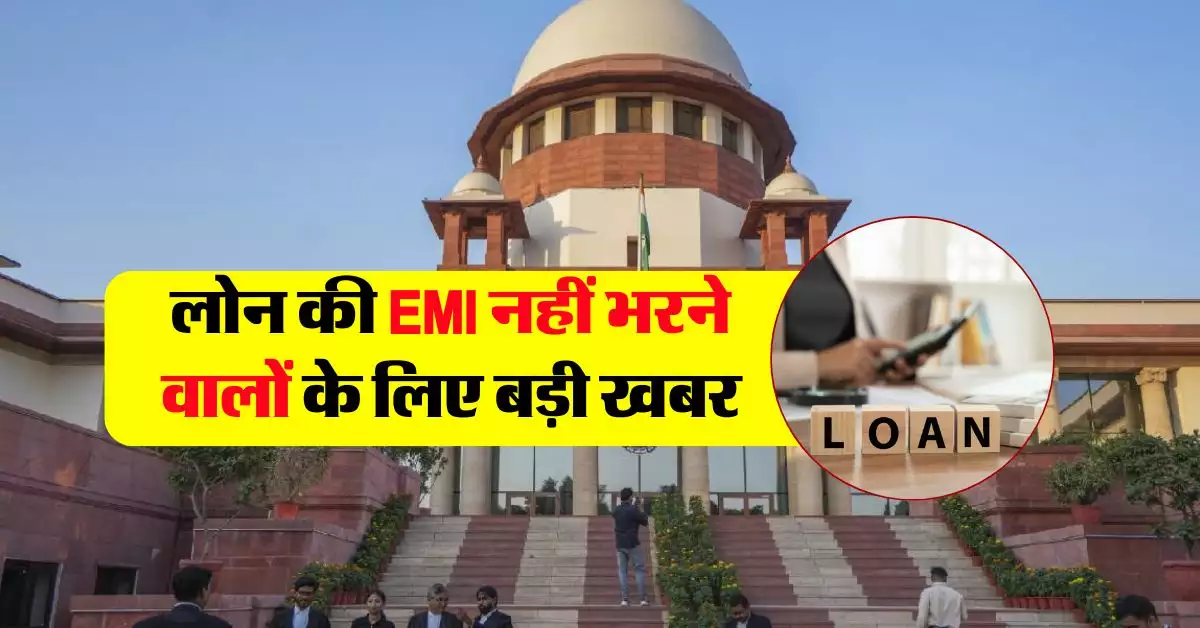In today’s fast-paced world, taking a bank loan with EMI (Equated Monthly Installment) facility has become a common practice to fulfill dreams and meet financial needs. Whether it’s buying a home, a car, or funding education, people often rely on banks and financial institutions to secure loans. However, there are instances when financial difficulties arise, making it challenging to repay EMIs on time. This can lead to stress and financial instability. Understanding these concerns, the Reserve Bank of India (RBI) has introduced a crucial rule to provide relief to borrowers struggling with loan repayment.
RBI’s New Loan Repayment Restructuring Rule
The Reserve Bank of India (RBI) has issued a new guideline aimed at easing the burden on borrowers who are unable to pay their EMIs on time. According to this revised rule, if a borrower is facing financial hardship, the bank can offer a loan restructuring facility. This allows borrowers to revise their repayment terms, such as extending the loan tenure or reducing the EMI amount.
What Does Loan Restructuring Mean?
Loan restructuring is an arrangement between the borrower and the bank, which modifies the terms of the existing loan to make repayment easier and more manageable.
Example:
If someone is paying ₹50,000 as EMI every month but is unable to continue with this amount, the bank can increase the loan tenure, and reduce the EMI to ₹25,000 per month. This helps in reducing the financial pressure on the borrower.
Key Benefits of Loan Restructuring
1. Lower EMI Burden
Extending the loan tenure reduces the EMI amount, making it easier to manage monthly expenses. Borrowers can handle other financial commitments without falling into further debt.
2. Avoid Becoming a Loan Defaulter
If EMIs are not paid on time, the borrower can be marked as a defaulter, which negatively impacts future borrowing capacity. Loan restructuring prevents this tag and maintains a clean financial record.
3. Financial Stability
When financial stress is reduced, borrowers can regain control over their finances. Loan restructuring acts as a financial cushion, helping stabilize personal finances during challenging periods.
CIBIL Score and Its Role in Loan Approval
CIBIL (Credit Information Bureau India Limited) is India’s leading credit information company that tracks loan repayments and credit card usage. A good CIBIL score is crucial for obtaining loans easily.
What is a CIBIL Score?
- Range: 300 to 900
- Ideal Score: 700 and above
Individuals with a score above 700 have a higher chance of securing loans with better interest rates.
A lower score can lead to loan rejections or high-interest charges.
How is CIBIL Score Affected?
- Timely EMI Payments: Boosts credit score.
- Loan Default: Drops the score significantly.
- Responsible Credit Card Usage: Maintains a good score.
- High Debt Ratio: Impacts creditworthiness negatively.
Banks evaluate the CIBIL score before approving loans to assess the applicant’s repayment capacity. A strong credit history builds trust between the bank and the borrower.
What to Do If You’re Facing Loan Repayment Issues?
If you are struggling to repay your EMIs, it’s important to act quickly to avoid further financial damage. Here are some practical steps to manage the situation:
1. Contact Your Bank Immediately
Reach out to your bank or financial institution as soon as you anticipate difficulty in paying EMIs. Discuss the possibility of loan restructuring to revise your repayment plan.
2. Increase Loan Tenure
Request an extension of your loan term. This will reduce your EMI amount, making it more affordable based on your current income.
3. Seek Expert Financial Advice
Consult a financial advisor to understand your options better. A professional can help you plan your finances and guide you towards the best solution.
4. Explore Additional Income Sources
Look for part-time work, freelancing opportunities, or small investment plans to supplement your income. Boosting your earnings can help you stay on track with EMI payments.
Why Timely Loan Repayment is Essential
Paying EMIs on time is crucial not just for maintaining your CIBIL score, but also for ensuring long-term financial health. Delayed or missed payments can lead to penalty charges, legal actions, or loan default status.
Key Reasons to Prioritize EMI Payments:
- Protect Your Credit Score – Ensures easy access to loans in the future.
- Avoid Legal Issues – Late payments can trigger legal recovery actions.
- Prevent Asset Seizure – In secured loans, such as home or car loans, banks can seize your property if you fail to repay.
Final Thoughts
The Reserve Bank of India’s (RBI) restructuring rule is a relief measure for borrowers facing financial difficulties. It offers flexibility in loan repayment, helps reduce EMI pressure, and prevents borrowers from being labeled as defaulters.
However, loan restructuring should not be seen as a long-term solution. Timely repayments and proper financial planning remain the key to financial stability. Maintaining a good CIBIL score and communicating with your bank can help borrowers overcome financial challenges and build a secure financial future.


I also have two wheeler Emi and I’m unable to pay in time, missed lots time to pay, and my over due has increased twice more by Axis Bank, to which I’m facing lots of problem, can anyone help me,how these sceme works